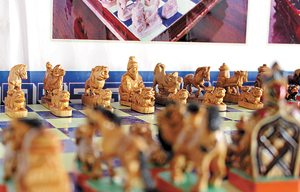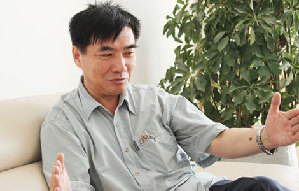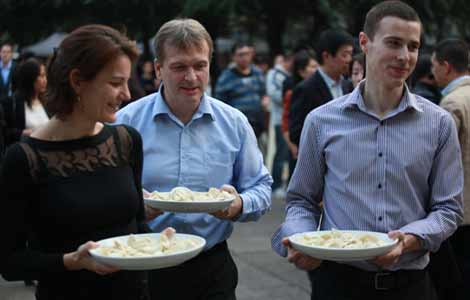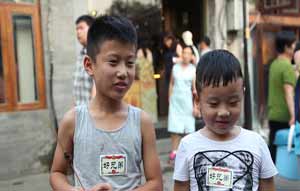Voice of tradition
Updated: 2013-07-11 14:19
By Wang Kaihao (China Daily)
|
||||||||
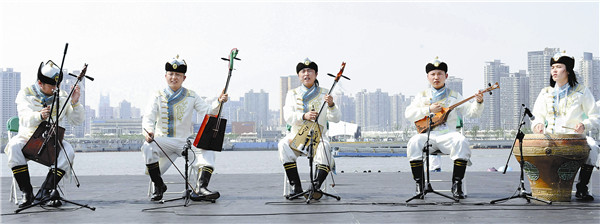 |
|
Khoomei singers from the Inner Mongolia autonomous region gave a performance at the 2010 Shanghai World Expo. Yang Shirao / Xinhua |
This has earned the ire of some of Od Suren's compatriots. But he continues to spread this traditional music globally and is rarely drawn on the cross-border barbs.
"We've attracted so many young people," he says.
"That's what's important to me."
Od Suren's only ethnic Han student currently studying is 31-year-old traditional Chinese medicine doctor Zhang Li, who has come from Beijing.
Zhang says the fact he doesn't understand Mongolian doesn't negate his comprehension of the melodies' emotions.
"I'm lucky to have a nice teacher who tolerates my poor performance," he says.
Zhang became fascinated by Khoomei when he met a singer in a remote Tuvan village in the Xinjiang Uygur autonomous region in 2003. He has since sporadically learned it from musician friends.
"I don't know of any such regimented Khoomei class in Beijing," Zhang says.
Zhang has taken leave from his job to attend full time. "Khoomei was sung by ancient Shamanism priests, who were also doctors. So I believe it has medical value."
Many rock bands incorporate Khoomei in their acts. But Od Suren believes the tradition should remain in a pure form.
"Modern music can only borrow some elements from Khoomei," he says.
"Authentic Khoomei never changes. It comes from nature."
That's why he often gives lessons on the mountains that crest Hohhot's northern fringe. "Students get closer to nature there," he says.
| Checkmate, Mongolian style | Grass is greener at home |

 Victoria Beckham S/S 2014 presented during NYFW
Victoria Beckham S/S 2014 presented during NYFW
 'Despicable' minions upset Depp's 'Lone Ranger' at box office
'Despicable' minions upset Depp's 'Lone Ranger' at box office
 'Taken 2' grabs movie box office crown
'Taken 2' grabs movie box office crown
 Rihanna's 'Diamonds' tops UK pop chart
Rihanna's 'Diamonds' tops UK pop chart
 Fans get look at vintage Rolling Stones
Fans get look at vintage Rolling Stones
 Celebrities attend Power of Women event
Celebrities attend Power of Women event
 Ang Lee breaks 'every rule' to make unlikely new Life of Pi film
Ang Lee breaks 'every rule' to make unlikely new Life of Pi film
 Rihanna almost thrown out of nightclub
Rihanna almost thrown out of nightclub
Most Viewed
Editor's Picks

|

|

|

|

|

|
Today's Top News
Going green can make good money sense
Senate leader 'confident' fiscal crisis can be averted
China's Sept CPI rose 3.1%
No new findings over Arafat's death: official
Detained US citizen dies in Egypt
Investment week kicks off in Dallas
Chinese firm joins UK airport enterprise
Trending news across China
US Weekly

|

|
